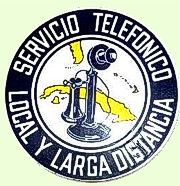 There has been a fair amount of publicity regarding the Obama administration’s recent action rolling back Bush administration policies on family remittances and travel to Cuba. The much less discussed communications provision of the action have been touted by some as potentially opening up a number of opportunities for U.S. companies seeking to provide telecom service in and to Cuba. Under these provisions, the new administration is permitting U.S. companies to “enter into agreements to establish fiber-optic cable and satellite telecommunications facilities linking the United States and Cuba” as well as to enter into roaming agreements for cell phone usage in Cuba.
There has been a fair amount of publicity regarding the Obama administration’s recent action rolling back Bush administration policies on family remittances and travel to Cuba. The much less discussed communications provision of the action have been touted by some as potentially opening up a number of opportunities for U.S. companies seeking to provide telecom service in and to Cuba. Under these provisions, the new administration is permitting U.S. companies to “enter into agreements to establish fiber-optic cable and satellite telecommunications facilities linking the United States and Cuba” as well as to enter into roaming agreements for cell phone usage in Cuba.
To be understood, however, this action needs to be put into some historical context as comprehensively described in this paper published by the Columbia Business School’s Virtual Institute of Information. When the Cuban embargo was imposed in 1962, this effectively froze the development of telecommunications links between the United States and Cuba, which at that time consisted of a submarine cable with a capacity to carry 130 calls and a tropospheric radio channel with a capacity of 79 calls. OFAC allowed the operation of these telecommunications channels to continue despite the embargo under a grandfather clause but prohibited upgrading these channels and forbidding payment of settlement payments to Cuba. (Settlement payments are those payments made by a carrier to a foreign carrier for connecting the incoming international call to its domestic subscribers.)
When the cable wore out in 1987, OFAC authorized its replacement, but only with the oldest cable available, which turned out to be some mothballed copper-cable with a capacity of 138 circuits. The antique cable was put down between West Palm Beach and Cojimar, Cuba at a cost of $8 million. Cuba refused to activate the cable until the U.S. met its demands for settlement payments for Cuba’s carriage of the local leg of calls originating in the U.S. and carried over the underwater cable. When Hurricane Andrew destroyed the Florida link of the troposphere channel, Cuba allowed a limited number of calls from the U.S. over ItalCable, Italy’s international carrier rather than allow the operation of the cable, which only went into operation several years later.
In the early 90s, the United States began to reconsider its telecommunications policy toward Cuba in large measure because it became easier for U.S. callers to Cuba to make those calls through Canada, bypassing AT&T and other U.S. carriers. As a result, the U.S. allowed carriers to make settlement payments to Cuba, an authority now codified in section 515.542 of the Cuban Assets Control Regulations. Section 515.542 of those regulations authorized transactions incident to the use of cable and satellite channels to provide telephone service to Cuba. As a result, U.S. telephone carriers can freely use existing satellite channels to provide telecom service to Cuba.
Indeed, the real barrier to building additional cable and communications facilities with Cuba may be economic more than regulatory. As an impoverished nation, telecommunications carriers may not see Cuba as a very attractive market. ATT’s response to the new policy was, to say the least, lukewarm:
AT&T spokesman Michael Coe said the [West Palm Beach-Cojimar] cable is no longer in operation, and the company connects calls to the island through third-party carriers. As for roaming agreements and direct connections to Cuba, the company has no plans yet.
“We’re certainly going to study the administration’s proposal,” Coe said.
Further liberalization of U.S. telecom policy toward Cuba is certainly laudable, but, at least for the moment, it’s not clear that the liberalization will have much practical effect.
 Permalink
Permalink
Copyright © 2009 Clif Burns. All Rights Reserved.
(No republication, syndication or use permitted without my consent.)

 Posted by
Posted by  Category:
Category: 

